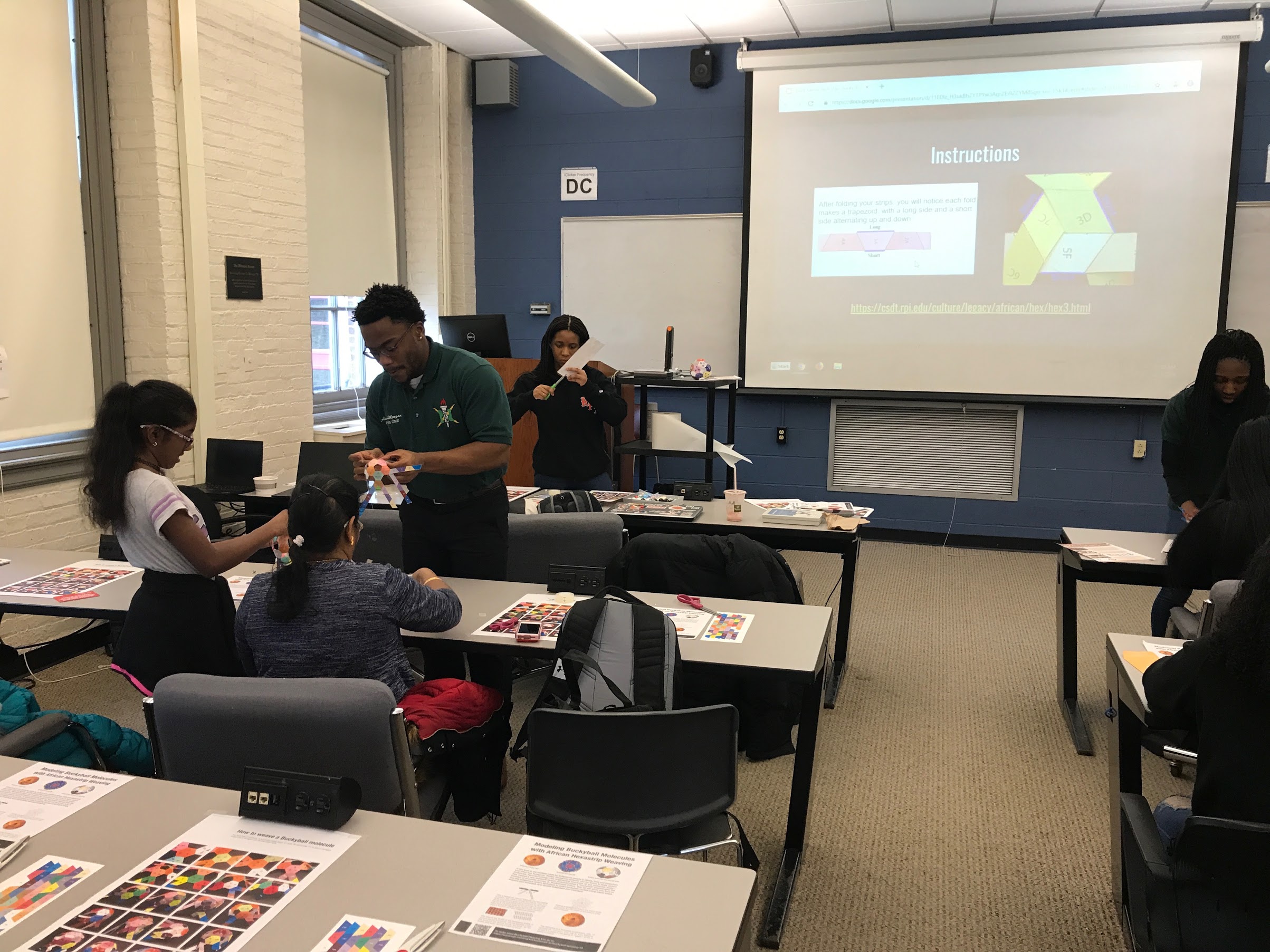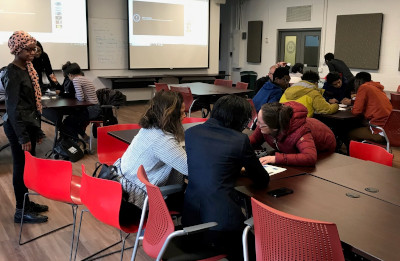Black Family Technology Awareness Day
March 18, 2019

Author: bbabbitt
Black Family Technology Awareness Day was held at RPI on March 16, 2019. During this day long event C-STEM @ Rensselaer collaborated the National Society of Black Engineers (NSBE) to offer three workshops to BFTAD participants. These workshops includeed "Modeling Buckyball Molecules with African Hexastrip Weaving", "Heart Rate Sensors and Do-It-Yourself Electronics", and the "Curl Care Lab" or, the science of hair care.
In the Buckyball workshop (shown above), students learned about hexagonal weaving patterns found in Africa and other indigenous cultures (e.g. India, Brazil, Malaysia, etc.) They learned that the weaving technique can be used to model hexagonal patterns in large carbon molecules, and how to replicate the pattern using strips of paper. The workshop was contextualized through chemistry and inspired participants to learn more about the structure of these molecules. Participants then created their own Buckyballs with pre-printed strips of paper that they cut out and tape together, forming the shape. This workshop provided inspiration for participants to become inventors and creators through the use of inexpensive do-it-yourself craft items.

In the Heart Rate Sensor workshop, students built heart rate sensors and learned about how biofeedback systems moderate heart rate using negative feedback. They will learned about how a dance called La Bomba incorporates positive and negative feedback directly into the performance of the dance according to the drum rate. Participants worked in groups of two to construct the heart rate sensor using the Arduino Microcontroller and related supplies provided. Participants then tested out the sensor and recorded data.

During the Curl Care Lab, participants learned about the importance of pH in hair care products. First, RPI Undergraduate Researcher Eva Dibong made a short presentation about the effect of various hair care products on natural hair within the context of pH. Next, participants were introduced to the Arduino Microcontroller and pH probe for do-it-yourself pH testing. They calibrated the probe using specialized calibration liquids. Following calibration, participants made their own natural product and then tested the pH of that product. Finally, participants will tested the pH of a selection of store-bought products with recognizable natural brands. This workshop provided inspiration for participants to become inventors and creators through the use of inexpensive do-it-yourself electronics.
Many thanks to the National Society of Black Engineers for helping to make these workshops a success. A special "Thank You!" to RPI Undergrad Eva Dibong for helping to coordinate all three workshops and presenting at in the Curl Care Lab. Thank you also to Cynthia Smith for all of her efforts in coordinating BFTAD each year.